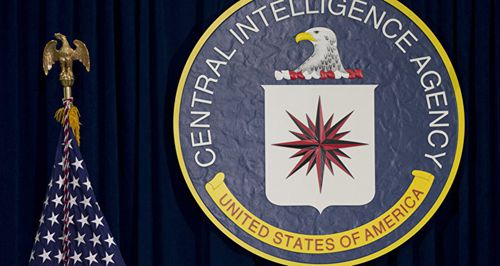China's state security authority cracks CIA espionage case involving Chinese state official

CIA Used Criminal Probe of US Airline for 'Torture Flights' - Commission Photo: AP
Chinese state security authority recently revealed a case concerning espionage activities of the US Central Intelligence Agency (CIA) against Chinese state officials, the Ministry of State Security released a statement on Monday, indicating that investigations into the individuals implicated in the case have been initiated in accordance with the law, and the case is still under investigation.
The individual subject to investigation, surnamed Hao, born in January 1984, is an official of a national ministry. Hao established a connection with Ted, an officer from the US Embassy in Japan, while processing his US visa application during his time studying in Japan.
Ted gradually developed a close relationship with Hao by treating him to dinner and presenting gifts. In addition, Ted also asked for Hao's assistance in writing papers, providing a "fee" in return, Hao agreed to this request.
Before the end of his term in the US Embassy in Japan, Ted introduced his colleague Li Jun to Hao, and the two sides continued to maintain a relationship.
Prior to the completion of Hao's studies in Japan, Li Jun clarified his identity as a member of the US Central Intelligence Agency (CIA) in Tokyo and engaged in the process of recruiting Hao as a spy, requesting Hao work in a critical unit of the Chinese national ministry upon his return to China. Hao agreed and signed an espionage agreement with the US side and accepted the assessment and training from the US.
After his studies abroad, Hao returned to China and continued to meet secretly with CIA personnel, providing a large amount of sensitive government information to the US while collecting payment from the CIA.
Following the discovery of Hao's espionage activities by one of China's national security agencies, a lawful inquiry has been initiated into his actions in accordance with law, and the case is under investigation.
The national security agency particularly emphasizes in its statement that Chinese citizens abroad should remain vigilant, resist enticements offered by suspicious individuals, and avoid succumbing to momentary gains that may lead to serious consequences, thus preventing themselves from falling into the abyss of criminal activities.
From urban communities to villages in remote areas in China, officials have been working on frontline to fortify national security education to the public, in order to improve public awareness and engagement. Public awareness campaigns have been enhanced after a newly revised Counter-Espionage Law came into effect on July 1.
Chinese lawmakers voted to adopt a revised Counter-Espionage Law in April, which came into effect on July 1, one of the country's measures to safeguard national security in the face of an increasingly complex counter-espionage situation.
Global Times

